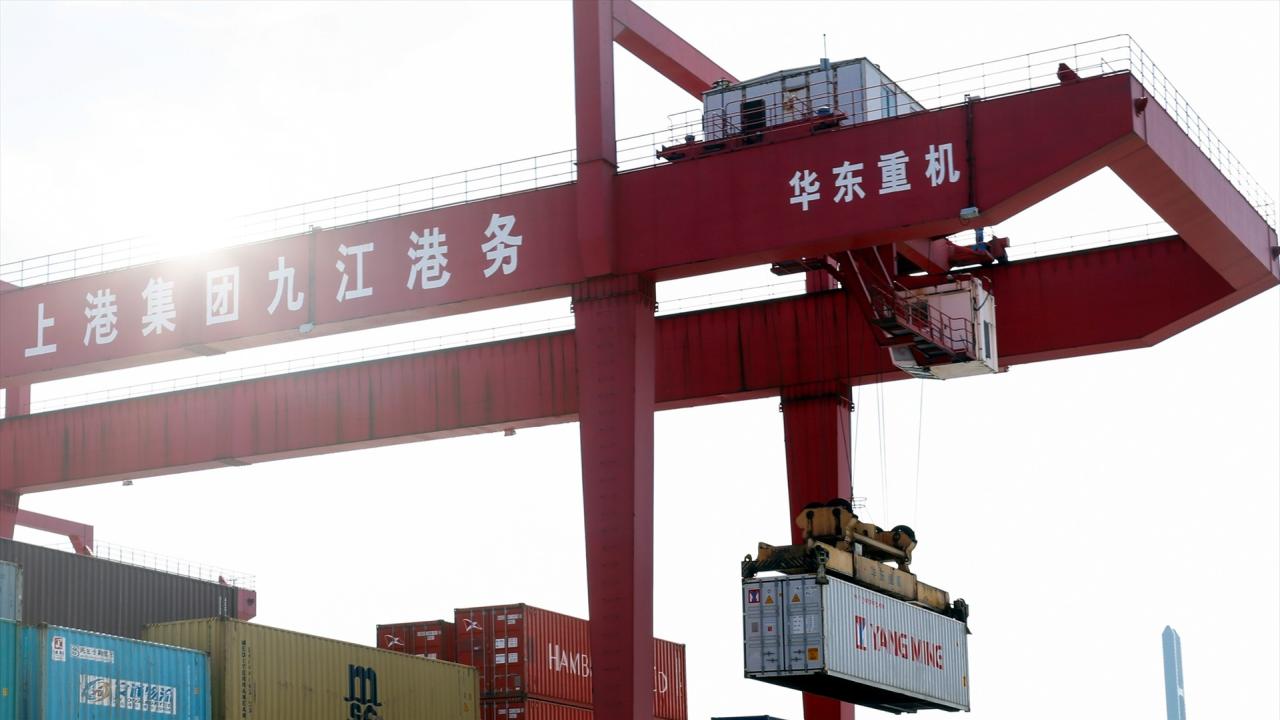
According to the National Statistics Office (ONE), retail sales registered a year-on-year growth of 4.8% last October, above the 3.2% increase of the previous month and the largest expansion since last February.
China's economy entered the fourth quarter of the year with a mixed picture, with retail consumption showing signs of recovery, while the ongoing correction in the real estate sector persists despite recent stimulus measures implemented by Beijing to put the economy back on track as Donald Trump's recent election victory rekindles fears of a new trade war between the world's two largest economies.
According to the latest batch of macroeconomic data published this Friday by the National Statistics Office (ONE), retail sales registered a year-on-year growth of 4.8% last October, above the 3.2% increase of the previous month and the largest expansion since last February.
Chinese demand growth was boosted in October by Singles' Day, which runs from mid-October to November 11, and by fears that a Donald Trump victory in the US election would lead to an increase in tariffs, leading to early purchases.
For its part, in October the production of the industrial sector registered a year-on-year increase of 5.3%, which represents a slowdown of one tenth compared to the figure of the previous month, while the service companies grew by 6.3% year-on-year, compared to 5.1% in September.
Fixed asset investment through October also increased at an annual rate of 3.4%, in line with the rate recorded in the first nine months of 2024, while, excluding investment in real estate development, fixed asset investment increased by 7.6%.
In the case of the real estate sector, the Chinese statistical agency has reported that between January and October, investment was 8.63 trillion yuan (1.13 trillion euros), which represents a year-on-year drop of 10.3%, compared to the correction of 10.1% until September and the most intense since 2021.
Commenting on the latest macroeconomic data, Betty Wang, chief China economist at Oxford Economics, said that the support measures deployed by Beijing "are beginning to bear fruit, but they are still insufficient."
"There is little room for complacency," he said, warning that deflationary pressures, slow investment growth, and problems in the property and foreign sectors will continue to pose risks to China's economic stability and "will require more decisive policy support in the near term."
In this regard, although the People's Bank of China made a "bold" rate cut in September and money supply growth has picked up recently, "it seems to be insufficient to lift inflation," since fixed asset investment growth remained stable at 3.4% in October, suggesting that the government's recent push had little impact on investment.
"It is also too early to conclude that the downtrend in the housing market is over," he warns, as the recent rebound in confidence and housing transactions have not translated into a significant boost for other real estate activities and project completions and investment growth remained negative.
From the consultancy Capital Economics, analysts Julian Evans-Pritchard and Zichun Huang point out that investors "were not impressed by the fiscal measures announced" by the Chinese government, although they point out that, although Beijing has not put as much emphasis on the issue as many expected, "that does not prevent further efforts to support growth" and they see it likely that the People's Bank of China will continue to relax monetary policy in the coming months, in addition to the Finance Minister's commitment to announce further fiscal support in due time.
Following Donald Trump's victory, economists also believe that this could give a boost to Chinese exports, at least initially, as American importers increase purchases "in an attempt to get ahead of the expected tariffs."
Overall, however, they warn that the combination of Trump's return and the reluctance of Chinese policymakers to embrace more substantial fiscal easing "means that growth prospects for the next two years have dimmed."
While they maintain that potential tariffs may end up doing less damage to the Chinese economy than many believe, they acknowledge that "a second trade war with Trump will clearly not be painless."
We therefore now expect official GDP growth to slow to 4.3% next year from 4.5% previously, before falling to 3.8% in 2026, they warn.
Copy to clipboardPrint









